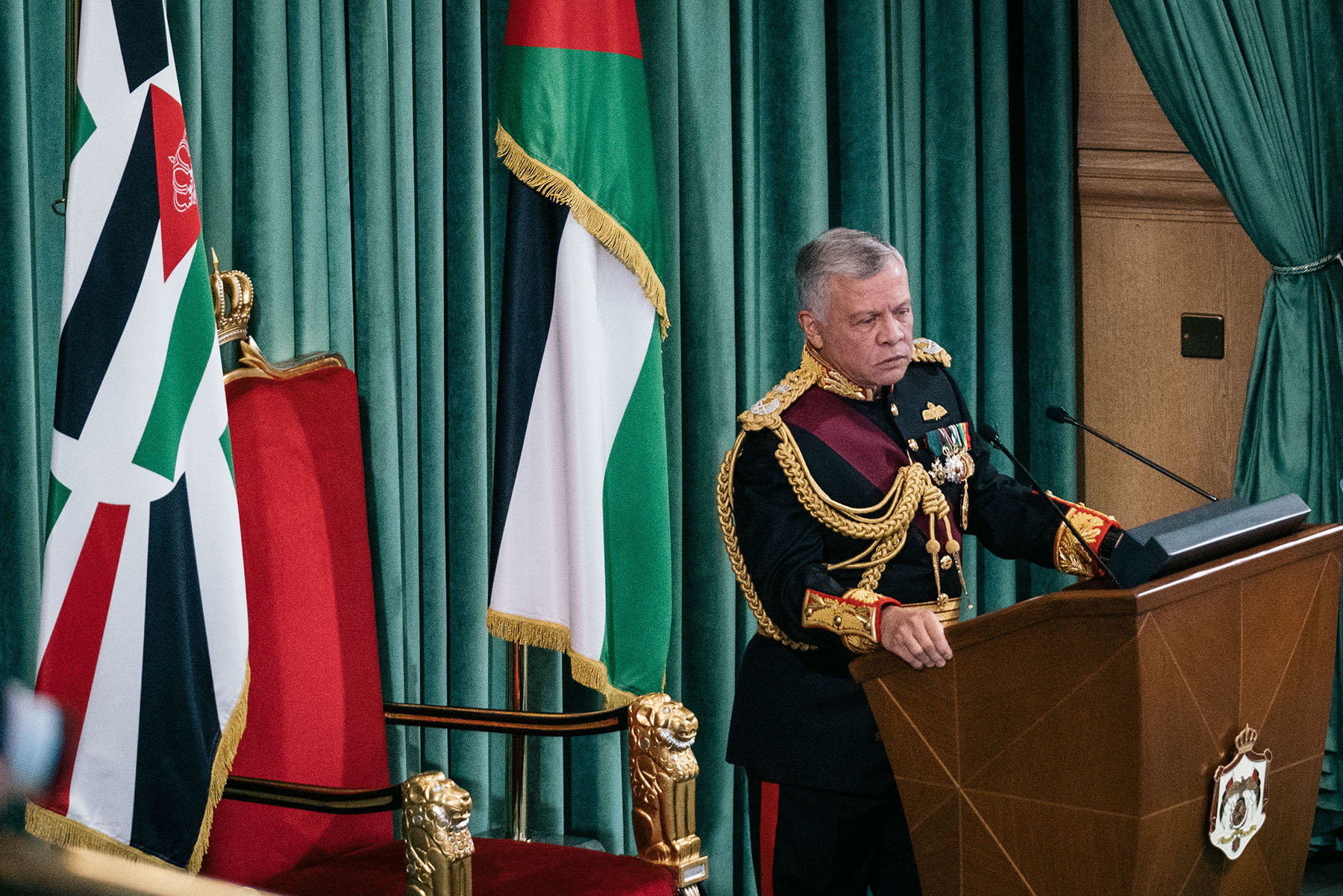Adam Shapiro is the Director of Advocacy for Israel-Palestine at DAWN.
In a pre-dawn raid last year, Israeli soldiers stormed the Ramallah office of the Bisan Center for Research and Development, confiscating files and other office material from the Palestinian NGO. After leaving behind a military order declaring the Bisan Center unlawful, the soldiers welded its office door shut. Israeli forces conducted simultaneous raids on six other Palestinian civil society organizations in Ramallah: Addameer, al-Haq, Defense for Children International-Palestine, the Union of Agricultural Work Committees, the Health Work Committees, and the Union of Palestinian Women Committees.
The raids followed the widely condemned declaration in 2021 by Israel's Defense Ministry that six of those Palestinian organizations were "terrorist" entities. The so-called terrorist designations "are part of a long history of harassment and smear campaigns against Palestinian civil society organizations," the director of Addameer, Sahar Francis, told DAWN in an interview last year.
As the executive director of the Bisan Center for Research and Development, Ubai al-Aboudi has been working at the center of Palestinian civil society for years. Founded in 1989, the Bisan Center focuses on violations of socioeconomic and cultural rights of Palestinians, "but also on alternative ways and modes for achieving development under occupation," he explains in an interview. The Bisan Center has also been leading a new initiative, called the Palestinian Popular Conference–14 Million, to bring together Palestinian activists and civil society from across Palestine, Israel and the Palestinian diaspora to push for one unified demand: democratizing the ossified and unaccountable Palestinian political system.
But the Bisan Center continues to face repression not just from Israeli forces in the occupied West Bank but also the Palestinian Authority, which has tried to restrict the Bisan Center's activities, in an attempt to shut down criticism of the Palestinian leadership and demands for free elections. "Sometimes you feel that from every side in Palestine, you are under attack," al-Aboudi says. "What the occupation and the PA share is that they don't want accountability. And because they do not want any accountability, they are using more and more extreme measures to suppress dissent."
In an interview with Democracy in Exile, al-Aboudi outlines the steps needed to reform the Palestine Liberation Organization, bringing democratic change to Palestinian politics.
The following transcript has been edited lightly for clarity and length.
"Sometimes you feel that from every side in Palestine, you are under attack. What the occupation and the Palestinian Authority share is that they don't want accountability. And because they do not want any accountability, they are using more and more extreme measures to suppress dissent."
- Ubai al-Aboudi
You and your organization, as well as other Palestinian civil society organizations, have been targeted in numerous ways by Israel, including through what was found to be Pegasus spyware. Israel also falsely labeled a number of civil society organizations as "terrorist" organizations and tried to convince foreign countries that that these organizations and their staff are terrorists. Yet at the same time, you are facing repression from the Palestinian Authority for mobilizing and organizing civil society.
How does it feel to be targeted by both of these entities at the same time, ostensibly two entities that are supposedly in opposition to each other and in conflict?
This is a good question. Sometimes you feel that from every side in Palestine, you are under attack. This actually happens a lot with Bisan, because what we have been trying to do is expose the complicity in human rights violations and help spread this awareness to the Palestinian community, especially through the grassroots. What the occupation and the Palestinian Authority share is that they don't want accountability. And because they do not want any accountability, they are using more and more extreme measures to suppress dissent.
I was arrested by Israel in 2019; I was arrested by the PA in 2021. With Israel, of course, there's the national question that this is an occupation, and the occupation is systematically arresting Palestinians. But with the PA, it becomes an internal democratization and accountability issue for me as a Palestinian.
I don't want to replace the Israeli soldier with the Palestinian soldier, or the Israeli jailer with Palestinian jailer, or Israeli violations of human rights with Palestinian violations of human rights. What we want as Palestinians is basic. This is why Palestinians are standing up. We want dignity, we want freedom, we want accountability and the right to practice our beliefs, to practice freedom of movement, to have the ability to develop as other nations, and to build our own futures for us and our children.
And yes, these basic rights are being deprived by the occupation—but also by the PA, which is corrupt. This is a well-known fact, well documented. Even PA officials have talked about it. An undemocratic regime turned into a dictatorship. And naturally, the security apparatus is unaccountable. The PA has signed so many international covenants, including the U.N. Convention Against Torture, but they still systematically use torture in their prisons. They limit civic space, and they still enforce economic and social policies that favor the rich and powerful in the PA elite, instead of helping the people get by.
What motivated the effort to create the Palestinian Popular Conference–14 Million? What is the basic idea behind it, and why is the right time for it?
Well, for us as Palestinian civil society and as activists, we started demonstrating and meeting in the streets after the assassination of Nizar Banat by the Palestinian Authority. We demonstrated and raised our voices demanding accountability for the murder of Nizar, demanding democratization of the Palestinian Authority and the Palestine Liberation Organization, and demanding the protection of our freedoms.
We were from different backgrounds. We have never worked before together. We were a large group. We met in the streets and in the Palestinian Authority's prisons, and we started talking about how we could push for change in Palestinian society. We agreed to launch together the Popular Coalition for Change—a social movement that aims to democratize the Palestinian public sphere, with interactions of people from Gaza and from abroad, with Palestinians from the diaspora, from '48, everywhere. The root cause of the problem is the absence of democratization in the Palestine Liberation Organization.
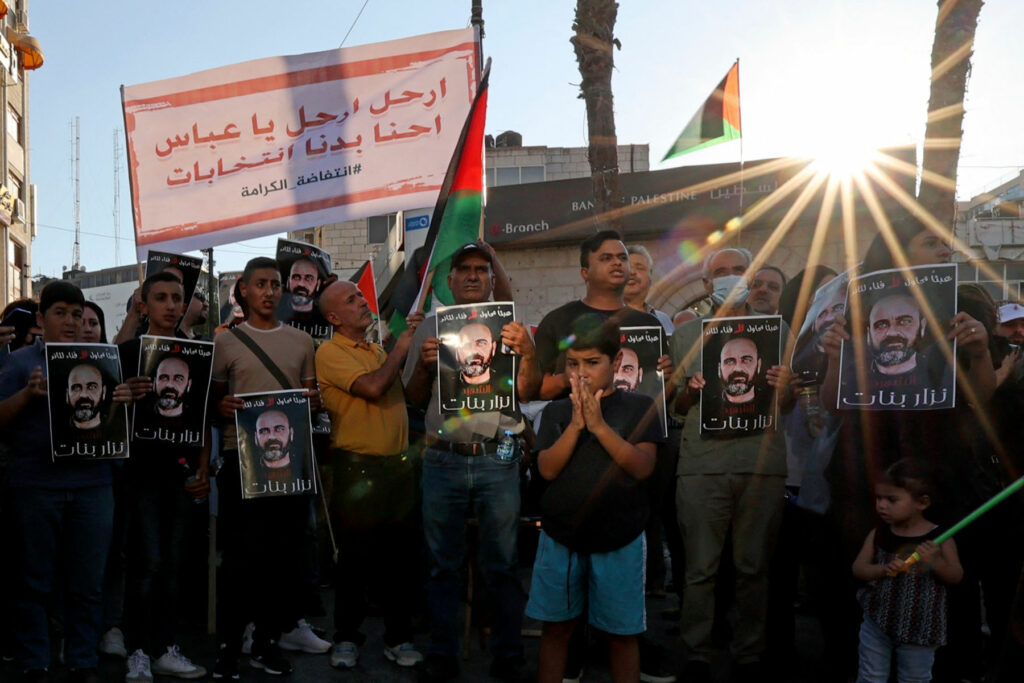
The PLO should be at the house of all Palestinians. And thus the name came out, the Popular Conference–14 Million. We were able to hold our first conference in December 2022, where we worked on achieving this kind of connection between different activists and working together.
In order to push for democratic change, at this conference we were able to elect a committee that is spread throughout the places where Palestinians are present, whether in the diaspora or here—Canada, Europe, Syria, Lebanon, Jordan, and also in historic Palestine. We've been working together, trying to first raise awareness about the idea of the democratization of the PLO, but also pushing together in order to create social pressure that will force the leadership of the PLO to hold general elections for the Palestinian National Council.
How did it get started? Who initiated this?
We found each other in the streets and in prisons—Palestinian Authority prisons, not Israeli prisons. Some people might find that surprising. There is probably a lack of awareness about the kind of repression Palestinians face from the Palestinian Authority, especially those who are trying to challenge issues of corruption or the lack of representation in democratic practice.
The PA has been withholding general elections from the Palestinian public since 2009. In 2009, the presidency of Mahmoud Abbas ended, but he didn't hold general elections. And in 2010, the cycle of the Palestinian Legislative Council [the legislature of the Palestinian Authority] also ended. The PA has been repressing dissident Palestinian activists calling for unity, a change of direction and reform.
This isn't something new. I was a very young man, about 16 years old, when in 1999 the first general statement on the corruption of the PA—which was about five years old at the time—came out. It was called the "Statement of the 20," because 20 activists signed it. We see ourselves as a continuation of that effort.
Those activists, some of them were imprisoned in PA prisons and some of them were shot. And actually, some of those activists are still with us today in the Popular Conference—14 Million. What we see ourselves is that the major problem of the PA is that its leadership is not accountable to the people, and it gets legitimacy from the PLO.
They claim that they are the revolutionaries. They claim the right for leadership and thus can do whatever they want—and that they understand the political context, the national context, the international context, much better than any other Palestinian, and that what they decree should rule, whether by force or by persuasion. But their power to persuade people has virtually disappeared. Nowadays, the PA is arresting people and cracking down on activists. The first major crackdowns happened after the Palestinian divide [after Hamas won elections in 2006 and ultimately took power in Gaza], and it was targeted towards the Islamist parties.
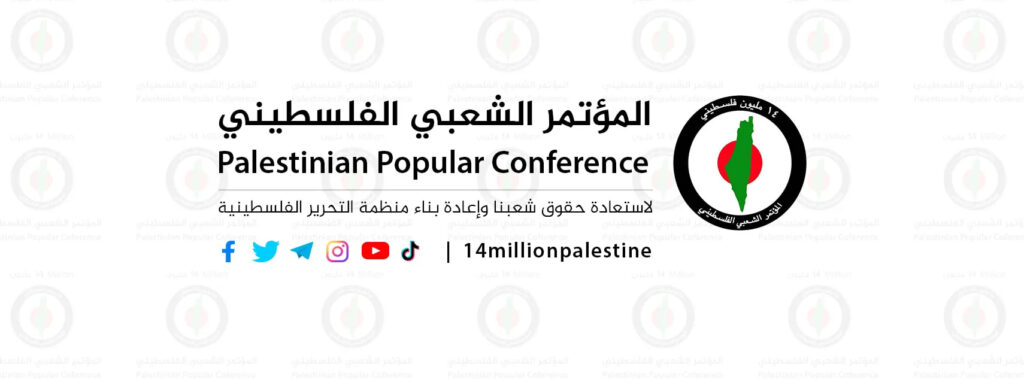
After that, they also continued the repression against activists who were calling for national unification and for lifting the sanctions on Gaza. In 2018, the PA sanctioned Gaza in order to squeeze Hamas financially, and this badly affected many Palestinian households, including many people who aren't affiliated or related to Hamas. This even affected people who were trying to get medical transfers in order to receive treatments for cancer outside of Gaza. So people started speaking up more and more against this kind of repression by the PA.
Most prominently was Nizar Banat. He had a Facebook page, and he did short videos, 5 or 10 minutes long, and he had a wide following. The PA came after him several times, beating him, shooting up his house—until in 2021, they came into his house, arrested him, and within 15 minutes, he was taken to the hospital, dead on arrival from the beatings that he suffered. He was literally beaten to death.
The next day, people started demonstrating, calling for justice for Nizar Banat. It started with people coming to the streets on their own terms. There was a call on social media to gather at 1:00 p.m., and everyone gathered. It became a series of major demonstrations against the PA. The demonstrations had three main demands. First, democratization; second, accountability for Nizar; and third, protection of public freedoms.
However, the PA cracked down very hard on these demonstrations. The PA police arrested many people. I was arrested twice during these demonstrations, on bogus charges of illegal gathering and badmouthing the PA. Many of us who were charged have been exonerated in front of Palestinian judges, but there are actually several activists who are still being tried on these absurd charges.
So people started gathering in the streets, coming out and saying we need democratization. And we started to get to know each other, the activists in the streets. We also started to get to know who is steadfast, who is willing to confront, who is willing to stand up for their rights, who is willing to not back down when there's a call for peaceful demonstrations.
The PA made a major mistake and arrested all of us and put us together in cells. Not everyone in the same cell. We were put with petty criminals, but we were so many that there were a few of us sharing many of the same cells. In the PA prison, we were able to discuss ways forward and how to achieve the desired change.
And the idea emerged to create a Popular Coalition for Change, including the lists that were running for the canceled local council elections; the National Democratic Movement, an independent movement that had been trying to organize for at least two years; and the "Enough Is Enough" social movement, which is an anti-monopoly social movement in the Palestinian territories. People from these different backgrounds all agreed on the need for democratic change. And then when we started interacting with the Palestinian diaspora, the question they had was, "What about us?"
We were able to integrate all of those activist groups and social movements in the Popular Conference–14 Million, demanding general elections for the PLO, while we also maintain our demands for PA general elections, both presidential and legislative council elections.
"The Palestinian political system is entirely controlled by one man. Whatever Mahmoud Abbas decides is what the PLO decides, is what the PA decides, is what the Palestinian official position is—whatever. He has no oversight, no kind of accountability towards anyone."
- Ubai al-Aboudi
To continue on that track of what's been happening in terms of the repression—you tried to organize a conference in person, as well as online, in November, and that didn't work out so well. It faced problems, including the arrest of your colleague Omar Assaf. What happened?
In November, we had the conference we were planning for almost a year. We rented a venue in Ramallah, which was approved for rental by the municipality of Ramallah. This theater would seat between 300 and 500 participants, and it would allow us on Zoom to include Palestinians in Gaza, '48 and the Palestinian diaspora. The PA put pressure on the municipality, although we paid up front and the PA has no right to interfere with a closed event, according to Palestinian law, which does not require prior approval.
The PA put pressure on the municipality of Ramallah to cancel our registration. They also put pressure on the media company that we contracted in order to facilitate the Zoom and technological connections, as well as recording the event.
We had to move to Plan B and use the Popular Coalition headquarters as a venue for the conference, which holds fewer people. At least we were able to have 50 people gather face to face. But the PA kept up the pressures and surrounded the building, shutting it down. They didn't allow people to go through with the conference. And finally, PA security forces also arrested Omar when he was going to open the hall in order to receive people. We expected Omar to be arrested, so we had pre-recorded his speech. So while he was in a PA prison, his speech was broadcast for everyone.
We ultimately found an alternative location in Ramallah, where we had people get together in smaller groups and connect online. We were able to go through the conference, go through the statements, the suggestions, and also to elect a steering committee for the Popular Conference–14 million.
Omar was released later the same day, because the PA realized that their efforts to sabotage the conference had failed. But this did not stop the PA repression. One week after that, in December, there was also a press conference where we wanted to explain our program, our schedule and our upcoming plans. This was also targeted by the PA, and they closed the offices and did not allow us to continue our work. They did not make any arrests, so we went ahead and held the press conference in the street.
Their efforts to stop us have failed because the media has been more interested in covering our activities and statements after the PA attacks.
If the idea of the Palestinian Popular Conference is to bring democratization back to the PLO and to reignite the democratic processes that were part of its legacy, what would you say to those who might suggest that the PLO itself as an institution is not really democratic? Or that the PLO is not really the place to democratize because of the legacy that it has, and the problems that have existed in it historically, including very deep schisms that led to internal warfare between different Palestinian factions? That perhaps what is needed instead is something that is different from the PLO and the PA, because the corruption is at their core and both institutions are controlled by the same figures?
The PLO was started with different Palestinian unions, including the engineering union, the students' union, the women's union. All of those institutions were actually part of the PLO from the start. When we are thinking about the PLO, its bylaws talk about elections. So it actually has a method for democratization. It needs updating; the bylaws were written in the 1960s.
This is true, but this does not also mean that this cannot be done. Especially today, with the opportunities provided to us by electronic voting, and [the fact that] Palestinians actually have a good representation via the Palestinian embassies. This is something logistical that can happen. And the Palestinian elections commission actually has a vision on how to do elections for the Palestinian National Council. So the problem isn't the logistics. The logistics of it can be arranged, and this is something that all the Palestinian factions already agreed on.
And we've been talking to Mohamed Barakeh, who is from the Palestinian High Follow-Up Committee in '48, about their members participating and having representation in the PNC. Palestinians in Israel might face more repression from the Israeli regime. Things there aren't developing in a good direction nowadays for Palestinians that are citizens of Israel.
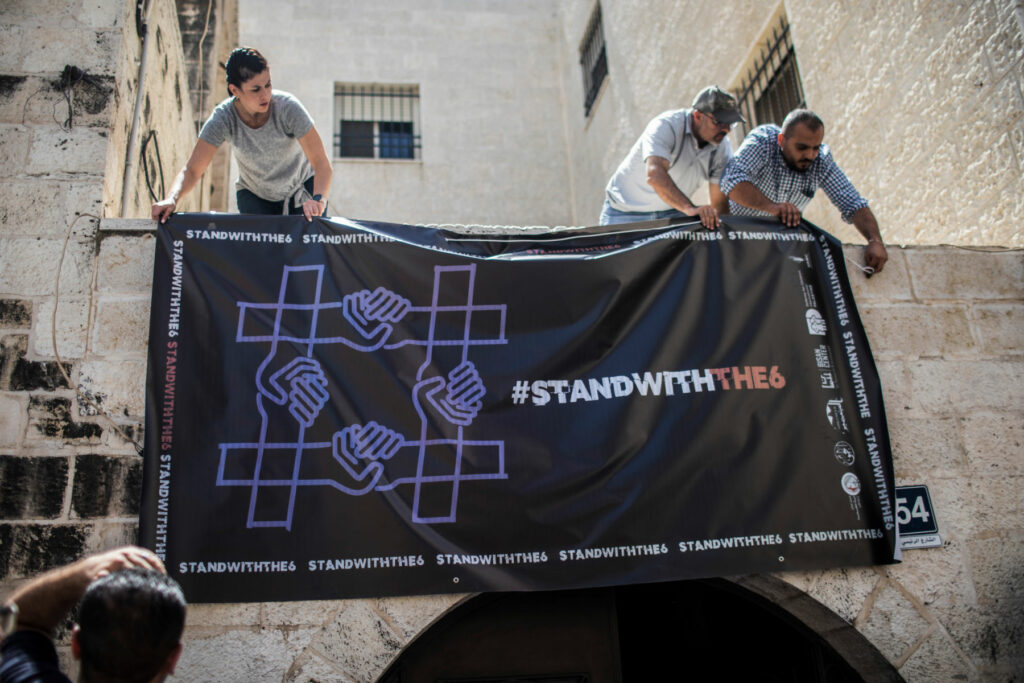
As for the PLO, the main achievement of the Palestinian national struggle since 1948 is the presence of the PLO. There are many other national liberation causes worldwide, but none of them have the recognition of the Palestinian cause. And this is due to the recognition that the PLO got, especially in the 1970s, as an observer member in the United Nations. Only two entities have the status: the PLO and the Vatican. It has the widest recognition as the official representative of the Palestinian people, but the problem with the PLO is that yes, it was a kind of power-sharing coordination between the different Palestinian factions.
In those days, the Saudi and other Gulf money that went into supporting the PLO's institutions and paying the different factions in it contributed to the corruption. This has contributed to people from the PLO being accustomed to this kind of patriarchy, this kind of clientelist relationship. But today, I think we are at a juncture. I think that people do not tolerate it anymore when corrupt officials excuse or justify things with statements like, "We are the revolutionaries and we know better than you." Today, people are more educated, are more aware, are more easily connected because the world is like a small village. With those interconnections, you can contact Palestinians all over the world—in Jordan, the U.S., Canada and Australia through a Zoom call.
These kinds of interconnections have resulted in people demanding more and more in deciding who are the Palestinian leadership, what are their roles and how can this leadership be accountable to its people? A former prime minister of Palestine who died recently [Ahmed Qureia] was accused… actually, it was proven that his company supplied concrete for settlements and the apartheid wall. It is a well-known and documented case. So this kind of leadership that's not accountable towards its people, it's part of the problem, not part of the solution for us as Palestinians and our cause.
But building a totally new Palestinian liberation organization poses significant problems and unknowns to us and to the cause. If we say that this PLO is not legitimate, then who has the international legitimacy once again? This will put us back into square one of our national struggle. Also, the PLO has, in theory, the mechanisms for its democratization. What is lacking is public pressure on the Palestinian leadership in order to enable general elections.
Assuming that you can move this ahead and get to the point where PNC elections could be organized, has there been discussion about what is the minimum needed to go forward? With a diaspora such as the Palestinian diaspora, in so many different places around the world with significant populations, and facing so many different circumstances, there would seem to be challenges to be able to get full participation in all places.
Have you thought about different scenarios in terms of organizing an election in which it wasn't possible for whatever reason to include Palestinians in, let's say, Lebanon as an example? Is it something that the committee has considered? What if it's not possible to enable every Palestinian to participate, but it's possible to get 75 percent or 80 percent, or something like that, of the 14 million global Palestinian population?
There are many challenges, I agree with that. We might not succeed in getting everyone, this is true. We know that at least getting 70 percent or even 60 percent of Palestinians to be able to cast their votes and have a democratically elected leader will be quite an achievement, even while searching for means for the others to be represented in other ways‚ such as through associations in their respective countries that can have elections.
For example, in Jordan, there are many local Palestinian associations or charitable associations that hold regular elections and elect people to represent them. And this is widespread. There are ways to find this kind of democratically elected representation, and this needs a lot of work. We also recognize that having partial elections to select an accountable leadership is better than the situation today. The situation today is that the Palestinian political system is entirely controlled by one man.
Whatever Mahmoud Abbas decides is what the PLO decides, is what the PA decides, is what the Palestinian official position is—whatever. He has no oversight, no kind of accountability towards anyone.
This kind of system that we are living in needs to change. And the only way I think to change it is democratically. It's a long process. We know that even in countries that went through democratization, the process takes a long time. In Western countries, the democratization process did not happen overnight; women got voting rights much later on.
So for us as Palestinians, it will be the first time that we hold elections for the PLO through the election of a national council. It's normal to not have every question solved, and especially in the first, second or even third elections. But having periodic elections, I think, will promote further democratization. And this will result in deepening our practice of democracy and having an elected leadership that is accountable towards the people and that can mobilize the Palestinian resources towards national liberation.
This also about hope for a free Palestine. It is our goal to have a democratic and inclusive Palestine, not a Palestine where people are discriminated against or where a dictator or an oligarchy takes control over the country.
Our aim is to build a better future than the one that we have right now. We know that we don't have all the answers for the 14 million Palestinians, but we know that through struggle, we can develop new answers and new questions. This is a process, and if we can go forward in this, we do not have to exclude any of the activists or the people that are trying to work for Palestine or to achieve a free Palestine. I think this process will culminate with an elected Palestinian National Council that can lead us towards emancipation.



























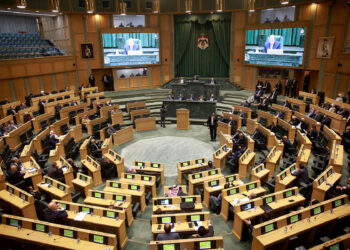



![Security forces loyal to the interim Syrian government stand guard at a checkpoint previously held by supporters of deposed president Bashar al-Assad, in the town of Hmeimim, in the coastal province of Latakia, on March 11, 2025. Syria's new authorities announced on March 10, the end of an operation against loyalists of deposed president Bashar al-Assad, after a war monitor reported more than 1,000 civilians killed in the worst violence since his overthrow. The Syrian Observatory for Human Rights said the overwhelming majority of the 1,068 civilians killed since March 6, were members of the Alawite minority who were executed by the security forces or allied groups. (Photo by OMAR HAJ KADOUR / AFP) / “The erroneous mention[s] appearing in the metadata of this photo by OMAR HAJ KADOUR has been modified in AFP systems in the following manner: [Hmeimim] instead of [Ayn Shiqaq]. Please immediately remove the erroneous mention[s] from all your online services and delete it (them) from your servers. If you have been authorized by AFP to distribute it (them) to third parties, please ensure that the same actions are carried out by them. Failure to promptly comply with these instructions will entail liability on your part for any continued or post notification usage. Therefore we thank you very much for all your attention and prompt action. We are sorry for the inconvenience this notification may cause and remain at your disposal for any further information you may require.”](https://dawnmena.org/wp-content/uploads/2025/04/syria-22039885951-360x180.jpg)




